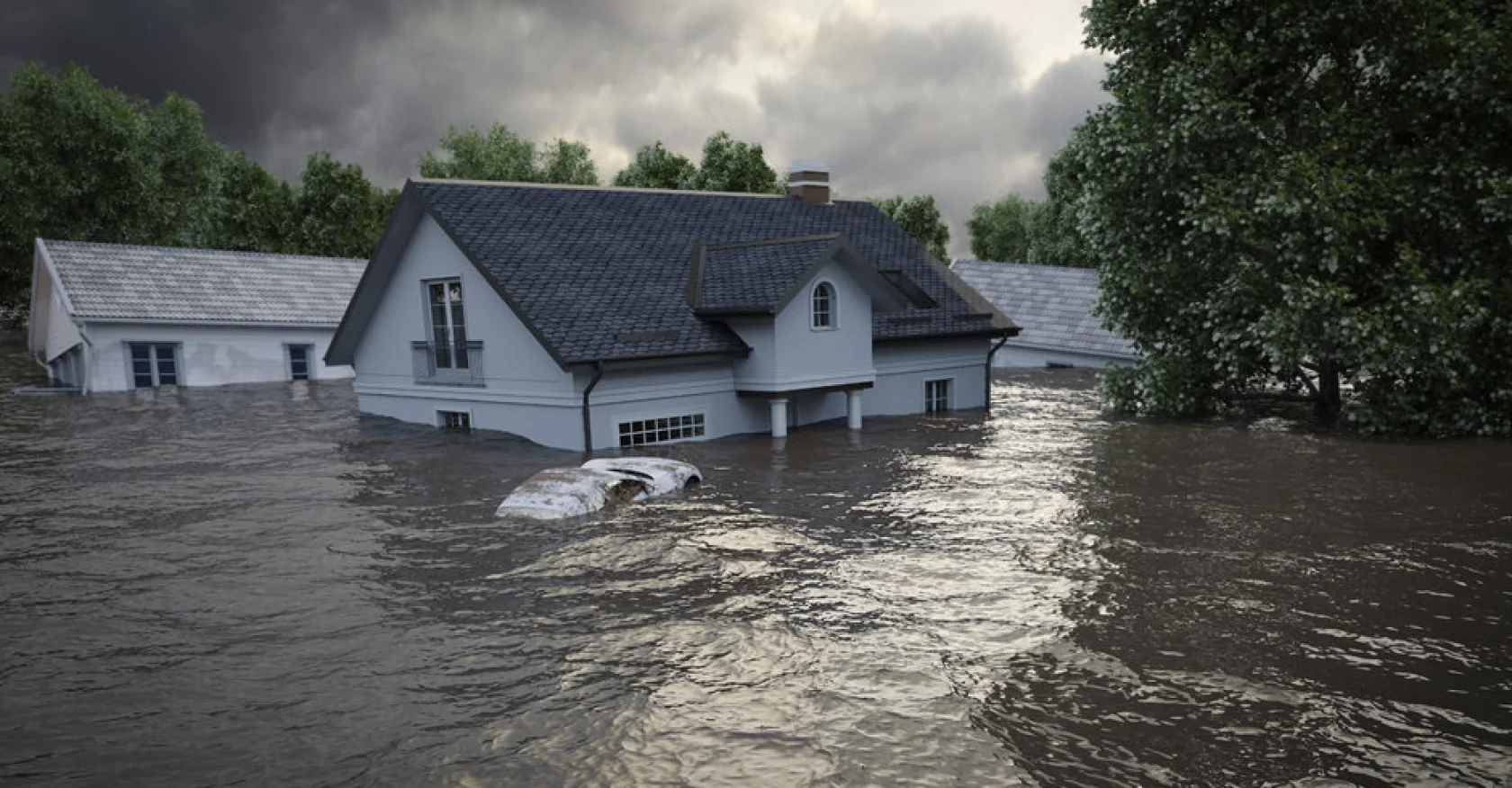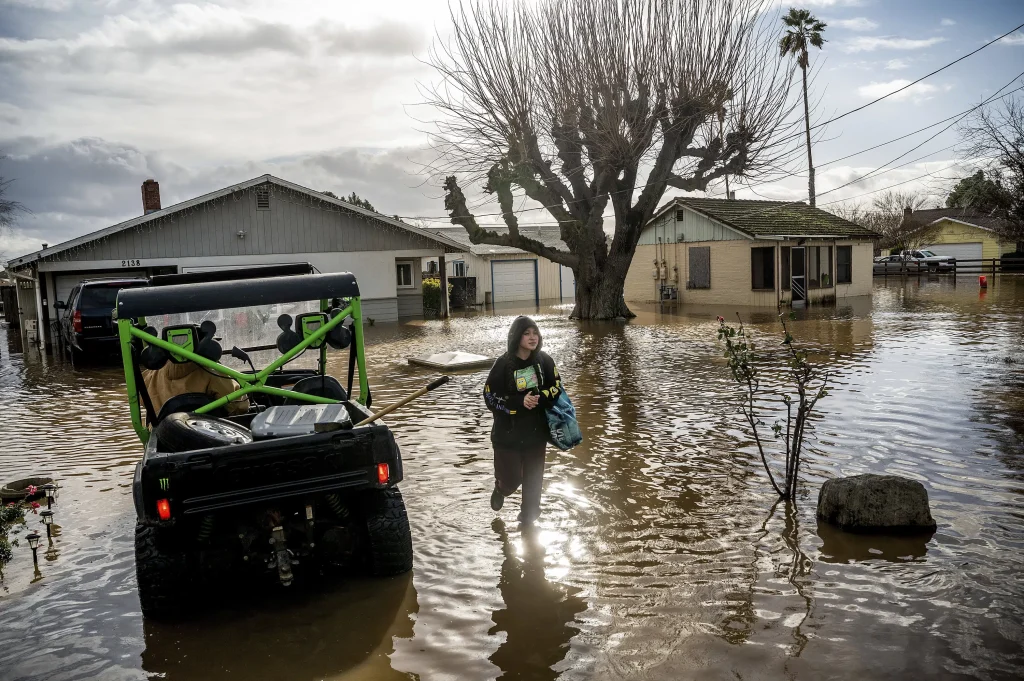Flood Insurance

Flood: The #1 Natural Disaster in the US.
Water is fun and adventurous in your backyard pool but creates havoc when seeping into your basement or bedroom. Flood insurance holds the difference between recovering from a loss or experiencing financial devastation.
Flooding is the most common natural disaster in the United States and can occur anywhere, even in the desert; yet, a standard homeowners insurance policy does not cover flood damage. You do not have to live in a high-risk flood zone to be affected by a flood. In fact, 20 to 25 percent of flood claims originate from properties outside high-risk flood zones.
It is essential to understand your true flood risk and whether flood insurance is something you should consider to protect your home from floods associated with hurricanes, tropical storms, heavy rains, and other impactful conditions.
Are You at Risk?
Protecting Your Home from the Risk of Water Damage
No property is entirely safe from the threat of flooding. Even minimal water intrusion can lead to substantial losses, with just one inch of water potentially causing $25,000 in damage. Without proper coverage, homeowners and renters are often left to manage repair and replacement costs themselves, which can create significant financial burdens. Standard policies for homeowners, renters, condos, landlords, mobile homes, or businesses typically do not cover water-related damages, making separate protection essential to guard against these types of losses.
How Coverage for Flooding Safeguards Your Property
This type of protection ensures that property owners can recover more quickly following a flooding event. Policies are designed to cover damage to both the physical structure and personal belongings resulting from water-related incidents. The National Flood Insurance Program (NFIP), overseen by the federal government, offers policies specifically for this purpose. Additionally, private insurers provide similar options tailored to individual needs.
If your property requires this type of coverage or you simply want additional protection, working with an insurance advisor can help you find the right plan for your circumstances.
Key Benefits of Having Coverage
- Financial Security: Minimizes the need for out-of-pocket expenses after flooding.
- Comprehensive Coverage: Includes damage to both property and personal items.
- Customizable Options: Available through government programs or private providers.
- Faster Recovery: Helps rebuild and replace damaged possessions more efficiently.
Who Should Consider This Type of Policy?
Water damage protection is especially critical for properties located in high-risk zones. However, flooding can happen anywhere, so coverage is a valuable safeguard for all property owners. Mortgage lenders often require this protection for homes in designated risk areas. Even outside these zones, such policies offer an effective way to protect your investment.
How to Get Started
To begin, evaluate your risk level and coverage needs. An experienced insurance agent can provide quotes from both government-backed programs and private providers. Online tools also make it easy to compare different options quickly.
Connect with a knowledgeable insurance expert today to learn more about protecting your property from potential water-related damages.
Suggested Links
Follow Us On
Our Carriers

In the United States, flood-related damages cost individuals more than a billion dollars per year with the average claim ranging from $30,000 to $45,000. Knowing your flood risk can help you choose the coverage which appropriately meets your specific needs.
VIA can help you keep your head above water when it comes to purchasing a NFIP or private flood policy. Our carriers feature the convenience of 24-hour claims service, electronic payments, and access to online policy documents. Get A Flood Insurance Quote.
Flood Insurance
In 1968, Congress created the National Flood Insurance Program (NFIP) to provide homeowners, renters, and business owners with a means to financially protect their property and possessions. To reduce the risk of flooding, participating communities adopted and enforced specific ordinances meeting or exceeding FEMA requirements.
If your home is in an NFIP participating community, you may be eligible for flood insurance at a reasonable cost through the federal government.
Private flood insurance is a viable alternative to buying a government-backed policy under the NFIP. Private flood coverage is available through private insurers, such as Lloyd’s of London or TypTap, and it satisfies federal mandates and mortgage requirements. Get A Flood Insurance Quote.



